On September 11, 2001 a terrorist attack shook New York, the USA and the entire world: Two planes were directed into the World Trade Center in New York City killing and injuring thousands. It was a watershed moment. 9/11. In 2016 junior year high schoolers will be taught about the act as a historical event that they weren’t yet alive to witness.
Global Memories of 9/11
The events of 9/11, especially the collapse of the second tower of the World Trade Center, have been watched by the biggest live audience worldwide. The majority of people who were out of their early childhood by the start of the new millenium (at least in the Western hemisphere) probably remember the 11th of September 2001.
Talking to friends, family and colleagues about their recollection of that day and the news that shook the world will probably still reveal many clear memories.
For this edition of “Where were you when…”, we went out of Europe, closer to the epicentre of the 9/11 tragedy. Lead by a simple question “Where were you when you found out about the 9/11 attacks?” we came to many uneasy answers, feelings and memories of that day that Americans are sharing with you in the following post.
People from all over the world have stories about that day – how they were told, what an impact it made on them, who they lost in the tragedy. And then there are the stories about people who witnessed it firsthand. Let’s start with one of those and move from there.
Chris, New Jersey, 24 years old in 2001
I was there that day. When the plane hit the first tower, I was getting off the train that I would take from my hometown in New Jersey to the World Trade Center station every day. Even though the station was something like seven stories underground, I felt a rumble. Everything shook. I was a 24-year-old law student at the time, and I was tired, so I didn’t think much of it.
The train station was connected to the street by a series of very big escalators. One of them was almost four stories tall. I went onto one of the escalators, and something felt wrong. There was a weird haze, a smell of smoke. Some people started yelling “bomb, bomb”. And then I arrived at the top of the escalator, and this is when I knew something was really wrong. Usually the place was packed with people, a mass of commuters and workers, but this day, there wasn’t anybody there. I walked to one of the doors, pieces of paper were flying around. And then a police officer grabbed me by my backpack and said: “Take your backpack, hold it over your head and run to the other side of the street!” I joined hundreds of people on the street opposite the buildings, all watching the burning tower.
And then people started jumping.
I saw first one, then another person jump. It was nauseating to watch. Then a third. By the time I watched a man and a woman, clutching each others hands in the air, it became too much. I had to leave. I couldn’t watch it, it made me sick. So I started to walk to my law school that was only a few blocks away. Three minutes after I left the site, the second plane hit. I was a few streets away and under a scaffolding, so I didn’t see it, but everything shook.
With the other students and teachers, I watched the burning towers from the school building. That’s when one of the towers fell down, straight down. I had to leave, I was too close. The teachers tried to keep us there, telling us that it was safest to hide in the cellar of the building, but a few of us said “hell no” and left. A group of us were walking to my friend’s place through the smoky streets of Manhattan, when the second building went down. That’s when we started running for our lives, running like we were in a zombie apocalypse.
Witnessing Tragedy and Reflecting on Life’s Priorities
It was already a cloudy day, and the first building coming down created a lot of dust and smoke, but when the second tower fell, a black cloud of smoke spread like a tsunami. We were far enough from the buildings that we weren’t consumed by the cloud, but when we arrived to my friend’s place, we were covered in dust.
My girlfriend, now wife, was working on Wall Street, and we couldn’t get a hold of each other. I remember I had an old Nokia phone, and I could see all the calls and voice mails coming in, but I couldn’t answer calls or call people. Phones were jammed. It took me four hours to get to my mother – and in the meantime, she didn’t know if I was dead or alive.
Emotional Impact and Coping
After we cleaned ourselves up, my friend’s husband said we should go and see if there was anything we could help with. Walking out there was like a nightmare I couldn’t wake up from. There were no cars on the street, and we were walking where they’d normally drive. There were gurneys lined up for survivors, but in the two or three hours we spent out there, only one ambulance came. That’s crazy. That was when I knew there would be no survivors from this tragedy.
I wasn’t home until 10 o’clock that night. It took me years to “get over it”, to stop having nightmares about what I saw that day. Still today, I hate this time of year, where the old news clips are shown and the stories are brought up, bringing me back to that time. But it is important that new generations learn about what happened that day. And to this day, I have a photo of the World Trade Center standing on my desk in my office to remind me what’s important in life. Not my job, but my family and the people I care for.
ShaLayne, Oregon, 13 years old in 2001
I had just started middle school, 6th grade, a few days before it happened. I remember we’d just finished first period, and we walked to the next class. The room was very dark, the blinds were down, and then the teacher turned on the TV. Everyone was standing up, watching the news being broadcasted on the classroom television. I was still very young, and what made the biggest impression was not seeing the video of the planes, but seeing the reaction of the adult – my teacher.
School ended early that day. I think we had a half day, they cancelled the rest of the classes. After I went home, the adults in my house talked about it. I grew up with a mom who was an add
ict, and for other kids it was all hush-hush, but in my home the adults weren’t that considerate. They talked about the war in Iraq and about the anthrax letter even though I was present. About whether there was a chemical war on its way. But as I remember it, the talks were never about muslims, just the war and the fear.
Timothy, Oregon, 11 years old in 2001
I was in my house that morning. My siblings and I had just woken up, and we were having breakfast when my Dad called. He was in New York on a business trip. My mom answered the phone,
and my Dad told her that he was alright, and that she shouldn’t worry, but we didn’t have a TV, so she had no idea what he was talking about.
A few days later she found a TV in the back of a closet and we got it hooked up to some kind of cable TV and got to see the footage. But mostly, I just remember my Mom being anxious and worried.
Eric, New Jersey, 24 years old in 2001
I was at K Bar L in Montana when the news broke. It’s a hunting ranch that is one of the last privately owned land in a wilderness area, and you can basically only get there by horseback. It’s out in the middle of nowhere, they have very limited power, and only one phone line. We got up in the morning and went to the great hall for breakfast, and since it was in September, there weren’t a lot of people there. September is after school vacation but before the hunting season. The great hall is a huge log cabin, and there’s just one big table where you eat together. This place is out of old west Montana, with animals on the walls that’s been shot there over time.
I was there with my brother and father, we’d been there for a few days, and as the owner walks out from the kitchen, we ask her “so, what’s the news today?” And she just casually says “The
World Trade Center has been attacked.” So we all gathered in the kitchen around this small portable AM radio, listening to George Bush telling us that we’ve been attacked. And my Dad said: “This is just like hearing the news about the Pearl Harbor attack in 1941.” He remembered.
All we had were some radio reports, but even though we talked and worried about it, we didn’t have that visual impact that others had. We went on with our day. People who had a TV saw the footage of people jumping out of the buildings to their deaths, but even when we got back to civilization, most TV stations had edited those parts out. It wasn’t until much later I saw that video. So it never hit me with the same impact it did others.
Lars, Denmark, Europe, 46 years old in 2001
I work as a journalist, and that day, we were practicing filming for news stories on our own. The photographer, who taught the course sent us out into the country, where we were to film for a story, we should edit later that day. I went to Stige ferry in Odense, the world’s shortest ferry route, and that’s where I was – filming a small ferry and its driver – when the towers fell in New York.
When I arrived back to the TV station where the course took place, the phone rang. It was from Newsroom, the international section. Back then we had a tough editor called Ilse Olsen – you can almost hear how tough she was by the sound of her name. She was the one calling, saying “Something happened, you know, and I could really use some working hands.” That’s when we knew something important happened.
What really struck me when we entered the office, was the way everybody just started working. Nobody complained or asked about the hours – we just worked. I wasn’t done until 12 that night.
Because I am a journalist, most of what went through my head was “we have to report on this.” But I have a special relationship with New York, because I lived there for a year and a half. I think I might’ve understood the impact better than some of my colleagues because of that, and my thoughts were given to the people I knew in the city.
That night, before I left the office, I told my colleague: “The world will never be the same again.”


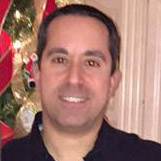
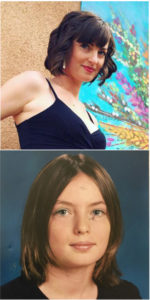
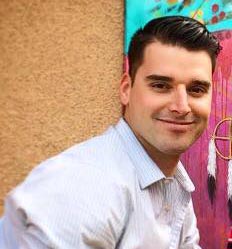
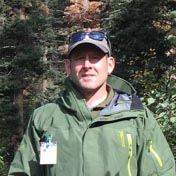
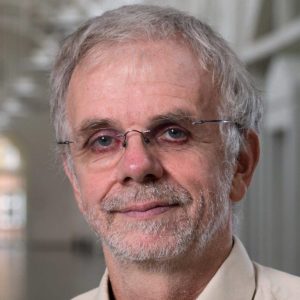

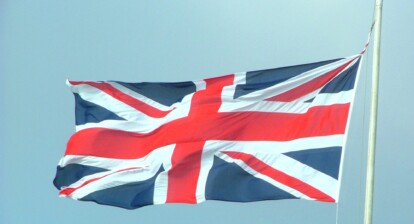
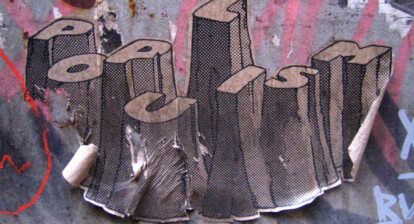
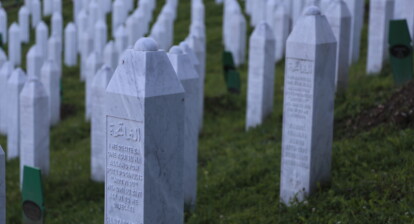
Pingback: @work between Prague and Gdansk, Day 5: On the trace of social movements and people's uprisings - History Campus